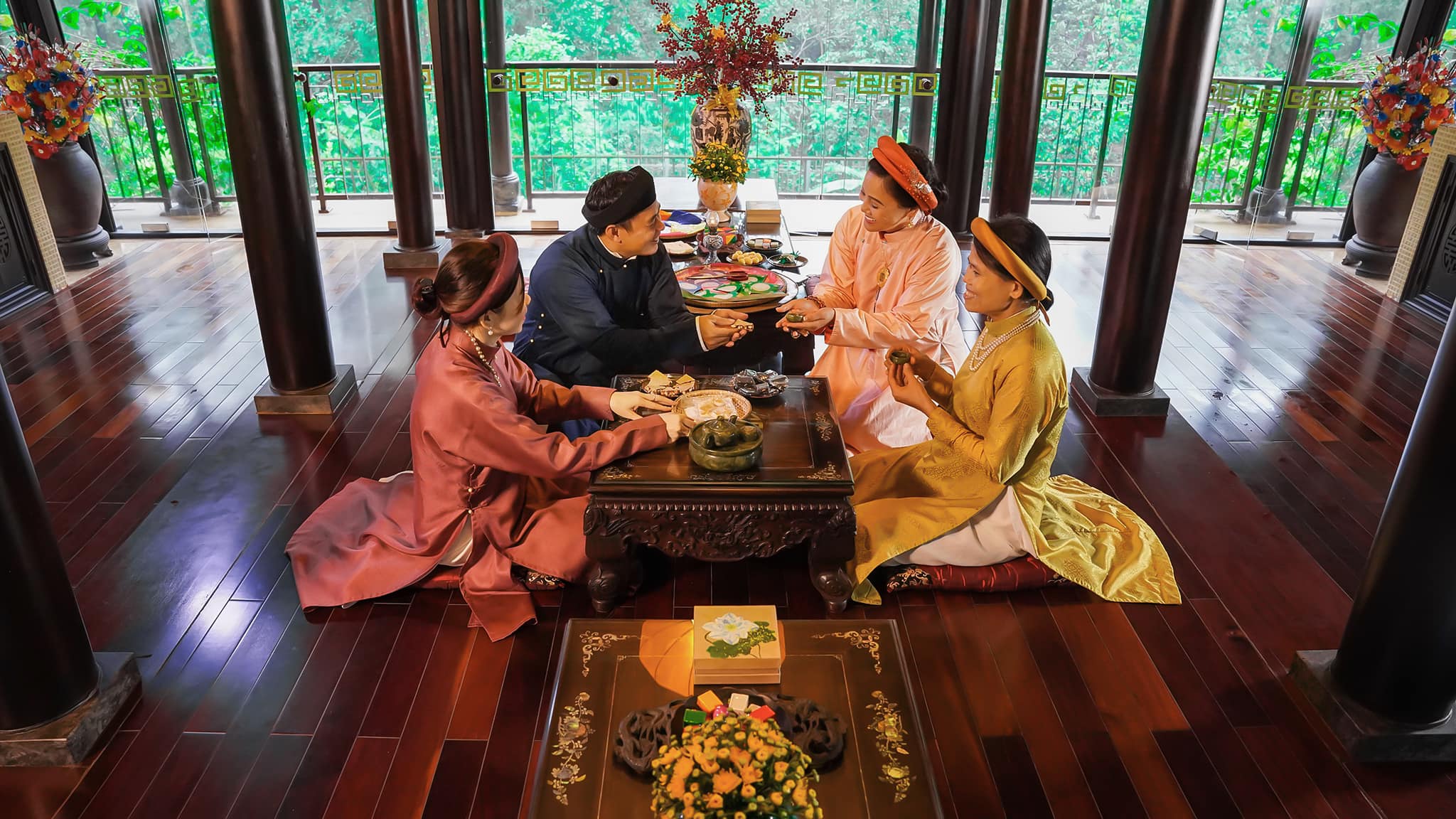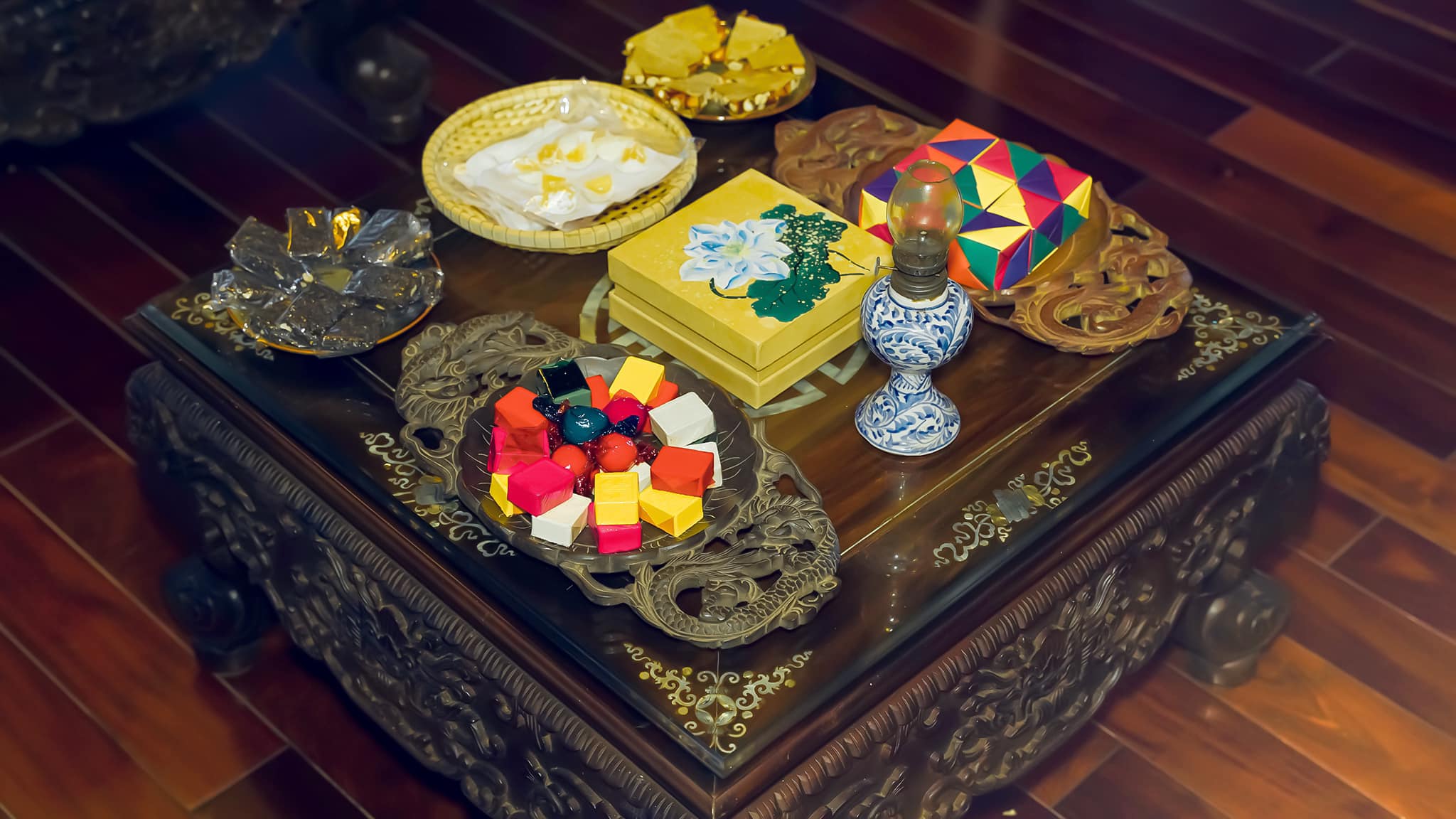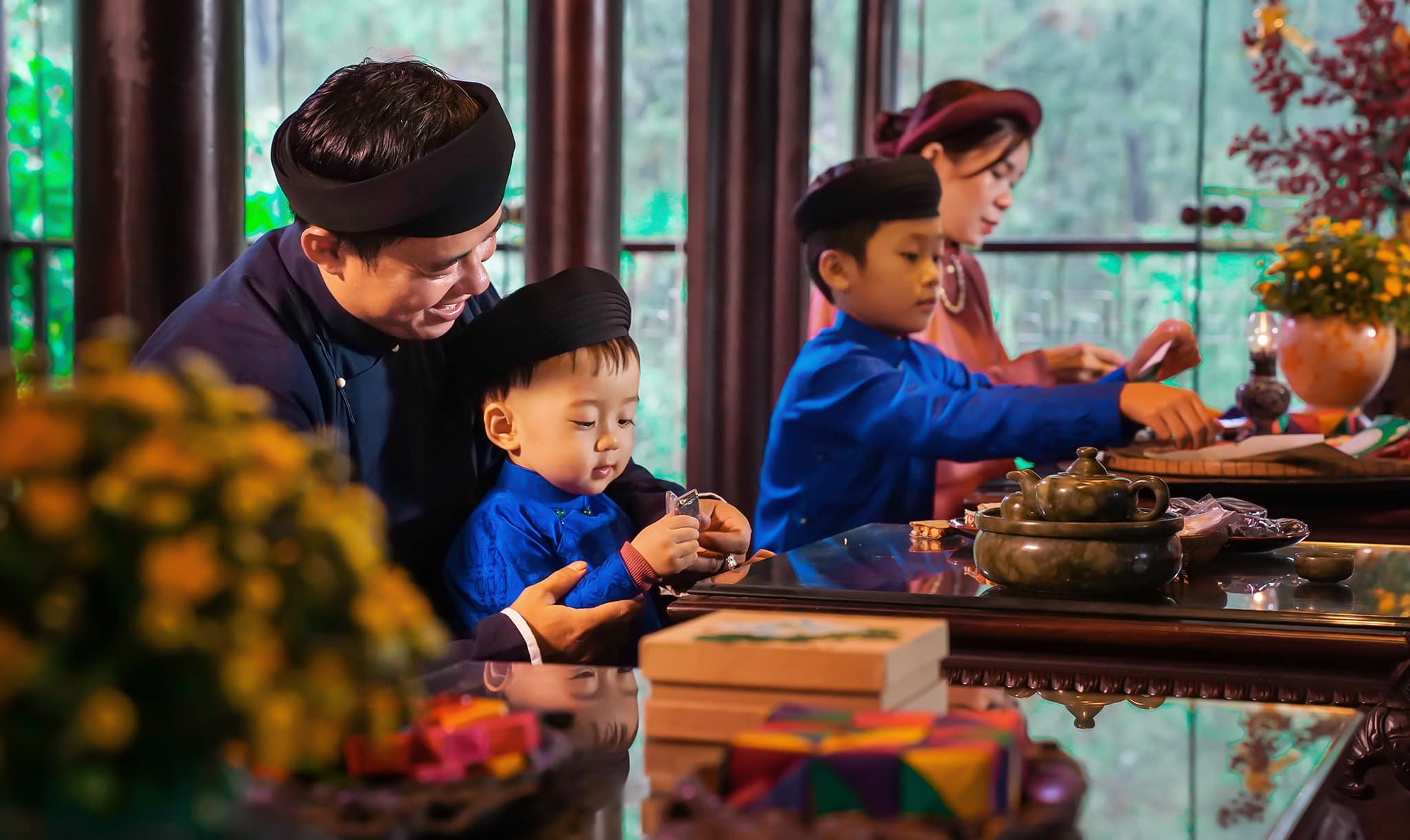When I was young, I always looked forward to Tet (Lunar New Year). Not because of the delicious food, not even for the new clothes, or the lucky money (li xi). I longed for Tet because of its scent. The scent that nowadays, even my aging senses struggle to find enough of, like in the old days.
The earth, the sky, and the four seasons all have their scents. Spring carries the aroma of budding trees and the fragrance of flowers. Summer bears the scent of sunlight, sweat, sea breeze, and the smell of dried fish spread over sandy beaches. Autumn brings the aroma of golden leaves, autumn wind drifting through the air, and the scent of sweet golden sunlight. Winter holds the scent of fireplace, of roasted corn, of dried sweet potatoes, and the fragrance of the cutting wind. It also carries the scent of warm clothes stored in closets, emanating the faint scent of mothballs. The scent of Tet is different, it's not the combined scent of all four seasons, it has a distinct aroma. I call it THE SCENT OF TET. This scent only lasts for a short time each year, then fades away until the next Tet arrives.

First and foremost, within me resides the scent of flowers. It's the unique and intense fragrance of the myriad of longevity flowers that my father used to love to display all around the courtyard whenever Tet approached. The pots of vibrant yellow flowers illuminated a corner of the courtyard. It's the aroma of the white lilies that Mom loved to place in a polished bronze vase on the ancestral altar. Even in the living room, the scent of red apricot blossoms, also placed by Mom, gently lingered. It's the fleeting fragrance of the orchids adorning the pergola at the edge of the courtyard, gifted by many during Tet. Also, it's the delicate scent emanating from the numerous blooming branches of yellow apricot flowers, meticulously arranged in the middle of the house. All these floral fragrances heralded the imminent arrival of Tet.
The scent of Tet also encompasses the fragrance of incense and aloeswood, which brings warmth to the home amidst the early spring chill. The scent of incense smoke serves as a thread connecting the departed souls with the living. It's a scent of remembrance, of family reunions. As children, we lit incense sticks, and candles, and burned aloeswood, then bowed respectfully before the altar, before the portraits of our grandparents, and parents. That lingering scent of incense smoke stays with us throughout our lives.
It's also the aroma of candied ginger, coconut candy, winter melon candy, sweet potato candy, and tamarind candy that Mom used to make. The scent of caramelized sugar and hints of coconut essence enticed the eager child awaiting his share. The aroma and the slightly burnt edges of the candy remained with the child until old age. Nowadays, few households make their own candy; instead, stores and supermarkets are filled with them, and few bother to sweat over a stove. My mother passed away twenty years ago; I no longer get to enjoy her candies, nor do I get to see her sweating over multiple trays of candy. Her presence returns only in memories every Tet, every spring.
Tet also carries the scent of molded cakes. In the past, Mom made various types of cakes wrapped in shiny colored paper. The scent of fragrant pomelo, vanilla, and the aroma of flour filled the air. All are placed in precious wooden trays adorned with mother-of-pearl inlay. It's also the scent of green bean sweet soup, and purple sweet potato sweet soup, served in delicate porcelain bowls painted with green dragon patterns, arranged in rows on the table. And the scent of square glutinous rice cakes simmering in boiling water on New Year's Eve, carrying the fragrance of cooked glutinous rice, matured banana leaves, and another indescribable yet unforgettable aroma.

It's also the scent of boiled pork, the kind that's hard to find nowadays. Well-cooked pork is even more delicious when soaked in fish sauce. Soak until the meat turns dark, and the fat glistens amber. At that moment, the piece of pork soaked in fish sauce emits a different scent. It's not the scent of ham, not the scent of cold cuts, but the true Vietnamese essence, as it absorbs the aroma of Vietnamese fish sauce through the hands of Vietnamese women. We must also mention the fragrance of beef jerky soaked in fish sauce. And let's not forget the enticing aroma of roasted pork, with its crispy, crackling skin. That's not to mention the tantalizing scent of hot sausage slices, skewered sour fermented pork rolls, and the scent of ripe banana leaves.
Then there's the pungent smell of pickled vegetables. Dried in the sun, pickled vegetables take on a different scent when soaked in vinegar. Add the aroma of pickled mustard greens, fully soaked and eaten with freshly made square glutinous rice cakes or cylindrical glutinous rice cakes, and you experience the full flavor of pickled vegetables. A perfect harmony of flavors.
It's also the scent of charcoal stoves burning bright red with pots of braised pork with eggs, pots of savory caramelized fish with turmeric, pots of grilled fish, fried fish, all prepared for the ancestral worship ceremony.
And then there's the scent of various greens. The aromatic herbs from the Central region, with their small leaves, exude a much richer fragrance than those with larger leaves but inferior essential oils. Dishes on Tet days often include accompanying greens, as the abundance of oil-laden meals calls for a balance with greens.
In the past, there was also the smell of firecrackers. It was the scent that most epitomized Tet. The moment you smelled the firecrackers, you knew Tet was almost here. On New Year's Eve, in the fleeting transition between the old and the new, within the sacred space, the scent and sound of firecrackers heralded the arrival of Tet, embodying the jubilant atmosphere of a new year, welcoming new successes. It's a pity that nowadays, Tet lacks the sound of firecrackers. Without the crackling of firecrackers, the Tet scent is incomplete. The children of the old days hold onto memories of bursting firecrackers and gleefully picking up remnants amid the thick smoke. It's a pity for the children born and raised without firecrackers during Tet. In their memories, there's no scent of firecrackers, no echoing sounds, and no crimson firecracker debris covering the ground.

The scent of money, of gold, is also a Tet scent, even though it's often burned on the death anniversary. But on Tet, this scent is different, imbued with solemnity and reverence. I recall my father's insistence on burning the gold completely to ashes, explaining that we couldn't offer torn clothes and damaged money to our ancestors because they weren't fully burnt.
Lastly, there's the scent of fruit platters, each fruit emitting its unique aroma, collectively forming the fragrance of Tet.
The Tet scent is a harmonious blend of various aromas unique to Tet. It's not just the scent of objects; it's also the sacred scent that accompanies each person throughout their life. While each family, each lineage, may have its own Tet scent, the overarching Tet scent is unforgettable, yet challenging to fully recreate as it was in the old days.
Tet is approaching once again. Remembering the Tet scent brings back memories of my father, of my mother, of those who have passed away. The overwhelming sense of longing brings tears to my eyes.